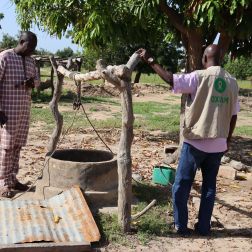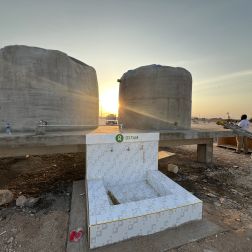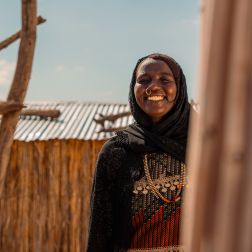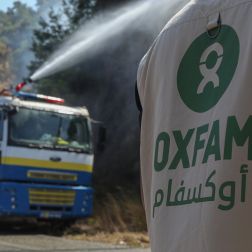- 5 mins read time
- Published: 20th April 2022
Fleeing Conflict in Ukraine
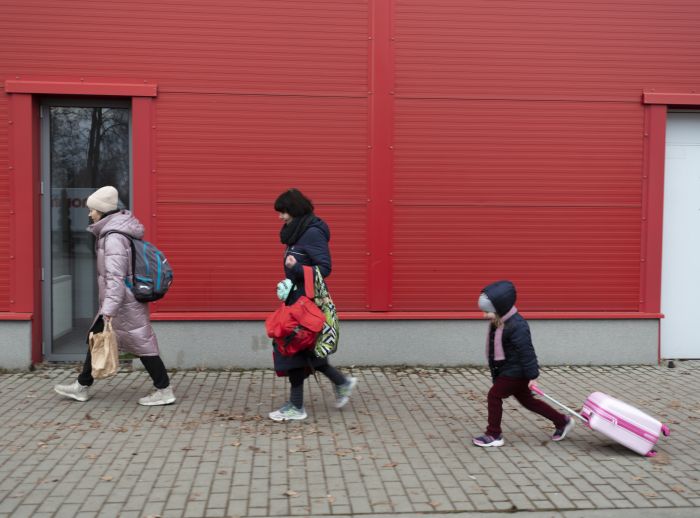
Conflict has forced over 4 million people to flee from their home country of Ukraine. They are arriving with only what they can carry. Right now Oxfam is working with partners in countries bordering Ukraine, including Moldova, Romania and Poland to ensure the changing needs of those who’ve been forced to flee can be met as they seek safety.
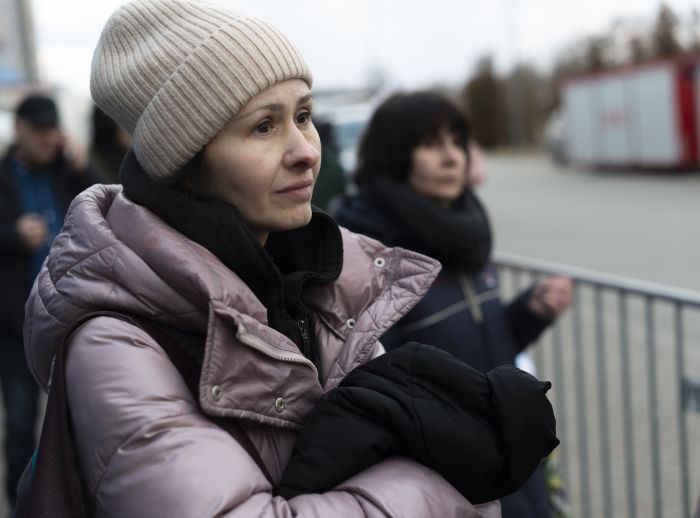
Julia
When Julia left Kharkiv, Ukraine, she took one last look at her home. “You look at your house and think about what to take with you, and then you realize you don’t need anything,” she says.
Julia left with her mother-in-law, her 9-year-old son, and nephews and nieces during a break in the bombardments they had endured for days, sheltering in a bunker. Her husband, like all men between 18 and 60, was forbidden by the government from leaving Ukraine.
"Children played jokes and smiled, they did not understand what was happening – they gave us strength to live on."
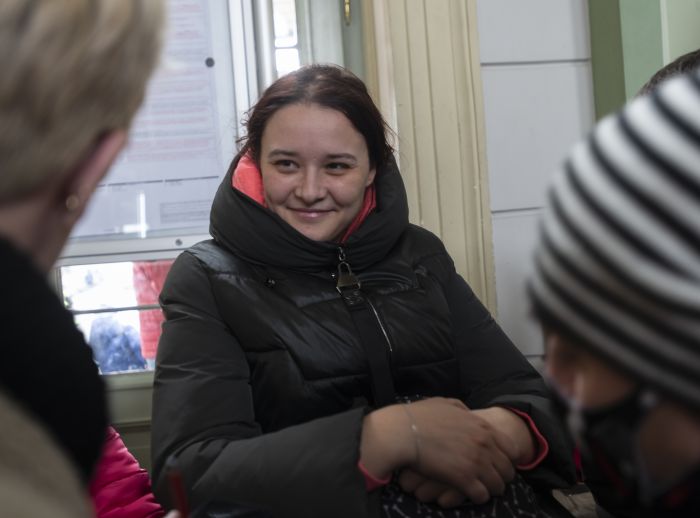
Tanya
In Ukraine, Tanya 31 was an accountant in a fairly well-known corporation. Tanya and her family left their hometown of Cherkasy on a 18 hours bus journey to travel to Przmeyśl, Poland.
“Everyday there is an air raid siren and missiles fly nearby - it is very scary. I was forced to leave my country in order to ensure the safety of my children.
"I have a friend in Poznań, she is also a refugee. She has recently arrived and has settled down there for a while. She will help us to settle things too.
"It's incredibly scary when military planes fly overhead. Even now in a safe country where the situation is calm, I am frightened by every loud sound."
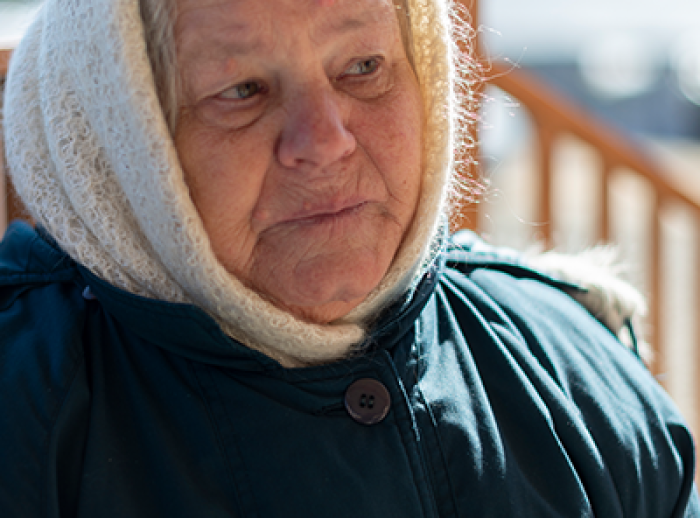
Ludomira
Ludomira 74 left Kharkiv, Ukraine and hopes to return and live back in her home.
"I had a nice apartment with good furniture, a lot of handmade things. The building has lost electricity and is without heating, but it is still standing. My husband's grave is there too. I miss him, and what will happen now? I don’t know where we are going, why are we going.
"All I want is that there be peace as soon as possible, that we return to our homes, to our friends, to our neighbours, and that I can visit my husband's grave."
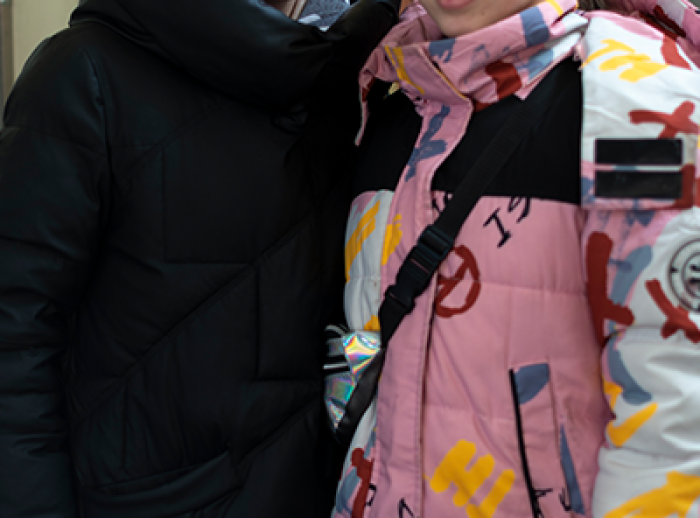
Liuudmyla
In Ukraine Liuudmyla 37 worked as a pharmacist and her daughter Natalia* was in fifth grade at school who played the piano and participated in competitions. On the 8th March, with thanks to the humanitarian corridor, they left Sumy, north-east Ukraine.
They travelled for 12 hours by bus and then 20 hours on one train, and then another 10 hours by train to get to Poland. Liuudmyla’s husband has stayed in Ukraine. Her sister and her husband’s mother who is 76 years old also stayed behind.
“I felt anxious when I arrived here and realised that my relatives stayed behind as it is now very unsafe there. I am calm for my child because she is here with me in Poland, but I am very worried about my relatives who stayed behind in Ukraine.”

Xenia and Armel
Xenia 35 and Armel 38 travelled with their son Gabriel* 3 from Kharkiv to Przmeyśl, Poland who are going to stay with a friend in Wroclaw.
“We had a basement and my neighbours and I organised it as a bomb shelter. We hid for a couple of days, then we tried for a long time to get to the station, but it was impossible, there was no public transport, there was not even a taxi. It was just awful.”
“When my son hears a siren, he says ‘Papa, siren!’ He doesn’t understand what is going on. Before I was so scared for his destiny.”
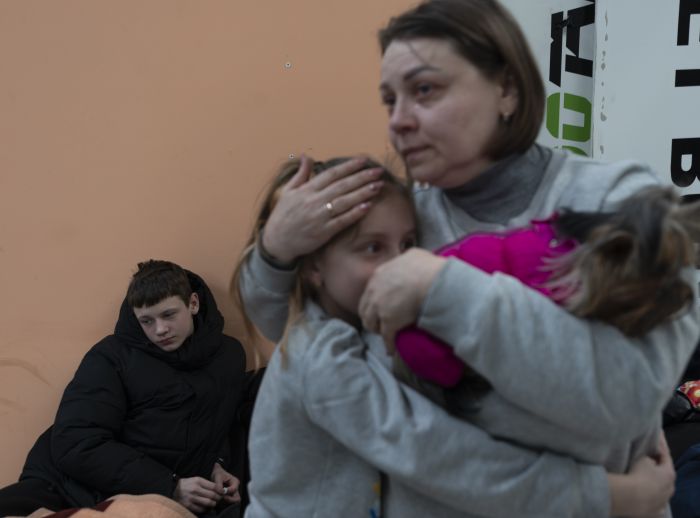
Elena
Elena 43 a beautician from Gorishnwi Plauni, with her son, Petro* 14, daughter, Olga* 9, and their dog Stephanie fled Ukraine to Korczowa, Poland.
“At the moment we have everything necessary for life, we are very happy and grateful for the help from the Poles.
"The children continue to study online (post pandemic) and dream of going to school. We do not have a computer for the children, only a smartphone to help in their studies”
Oxfam Response
These stories were gathered Oxfam staff who were in Poland assessing the needs of refugees and identifying partners that can provide services for people fleeing Ukraine. Oxfam is working with partners in countries bordering Ukraine, including Moldova, Romania and Poland. These partners will lead on projects that Oxfam supports.
Our activities with partners currently range from:
- Sharing information with refugees at border points and providing access to reliable information through hotlines and social media
- Distributing the resources that people need to survive today, including food parcels and hygiene kits
- Setting up handwashing stations and toilets, including ones that are accessible for people with disabilities, and showers.
- Providing psycho-social support and advice to help people to deal with what they are going through.
- Access to legal aid so that people arriving from Ukraine can receive support and learn about their rights.
- Focusing on the needs of vulnerable groups and minorities, including Roma, LGBTQIA+, women travelling with young children and people with disabilities
